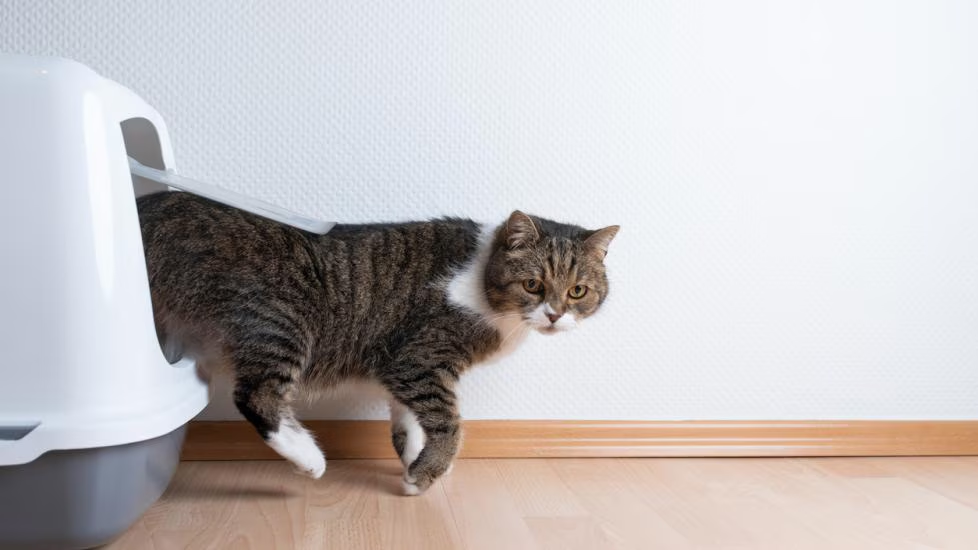Chronic diarrhea in cats is a condition that many pet owners find worrying and distressing. While occasional bouts of diarrhea may not raise any red flags, persistent or recurrent diarrhea lasting more than a few days can indicate an underlying health issue that requires attention. Chronic diarrhea in cats can lead to dehydration, malnutrition, and weight loss, making it crucial for pet owners to address the condition as soon as possible. In this article, we will explore the possible causes of chronic diarrhea in cats, common symptoms to watch for, diagnostic methods, and treatment options to help manage and improve your cat’s health.
What is Chronic Diarrhea in Cats?
Chronic diarrhea in cats is generally defined as diarrhea that persists for three weeks or longer. It can present in several forms, such as watery, loose, or mucus-covered stools, and may occur frequently throughout the day. In addition to causing discomfort for the cat, chronic diarrhea can lead to significant changes in the cat’s behavior, including a loss of appetite, lethargy, and weight loss.
Since diarrhea can be caused by many different factors, ranging from dietary changes to infections and systemic diseases, it is important to determine the underlying cause. Persistent diarrhea can also lead to dehydration, electrolyte imbalances, and other complications, so it is essential to get your cat checked by a veterinarian if this condition persists.
Common Causes of Chronic Diarrhea in Cats
Several factors can contribute to chronic diarrhea in cats, each requiring different treatment approaches. Here are some of the most common causes:
- Dietary Indiscretion and Food Sensitivities
- One of the leading causes of chronic diarrhea in cats is an adverse reaction to food. This can include food allergies or sensitivities to certain ingredients such as dairy, gluten, or specific proteins. Some cats may develop gastrointestinal issues due to sudden changes in their diet, such as switching food brands or introducing new treats. Cats are also known to occasionally consume non-food items, such as plants or spoiled food, which can lead to digestive upset.
- Inflammatory Bowel Disease (IBD)
- IBD is a common condition in cats that involves chronic inflammation of the gastrointestinal tract. It can affect various parts of the gut, including the stomach, small intestine, and colon. Cats with IBD often experience chronic diarrhea, vomiting, weight loss, and a decreased appetite. The condition is believed to be caused by an abnormal immune response to food antigens or infections. Treatment usually involves a combination of dietary changes and medications to control inflammation.
- Parasites
- Internal parasites, including roundworms, hookworms, giardia, and coccidia, are a frequent cause of diarrhea in cats. These parasites invade the digestive system and cause inflammation, leading to watery stools, vomiting, and in some cases, blood in the stool. Kittens and outdoor cats are at a higher risk of parasitic infections, but all cats should be regularly dewormed, especially if they show signs of gastrointestinal distress.
- Bacterial or Viral Infections
- Bacterial infections, such as those caused by Salmonella or E. coli, can lead to chronic diarrhea in cats. Viral infections, such as feline panleukopenia (a severe viral infection), can also affect the gastrointestinal system. Infected cats may experience watery diarrhea, fever, and loss of appetite. Feline coronavirus (FIP) can also cause long-term digestive issues in some cases.
- Exocrine Pancreatic Insufficiency (EPI)
- EPI is a condition in which the pancreas fails to produce enough digestive enzymes to break down food properly. As a result, cats with EPI often experience chronic diarrhea, weight loss, and an increase in appetite despite losing weight. The condition is more common in older cats and can be managed with enzyme replacement therapy and dietary changes.
- Hyperthyroidism
- Hyperthyroidism is a common condition in older cats, where the thyroid gland becomes overactive and produces excessive amounts of thyroid hormone. This can accelerate metabolism, leading to symptoms such as diarrhea, weight loss, increased appetite, and increased thirst. Treatment options for hyperthyroidism include medication, radioactive iodine therapy, or surgery to remove the thyroid gland.
- Colon Diseases
- Chronic diarrhea can also be caused by conditions affecting the colon, such as colitis (inflammation of the colon). Colitis can result in frequent, urgent diarrhea with mucus or blood. It is often associated with stress, infections, or dietary intolerances. Chronic colitis may also be linked to other conditions such as IBD or even cancer.
- Cancer
- Gastrointestinal cancers, including lymphoma and adenocarcinoma, can cause chronic diarrhea in cats. These cancers disrupt the normal functioning of the digestive system, leading to symptoms such as persistent diarrhea, weight loss, and vomiting. While cancer is more common in older cats, it can occur at any age, and early detection is essential for effective treatment.
- Stress and Anxiety
- Cats are sensitive creatures, and stress can manifest in a variety of physical symptoms, including gastrointestinal issues. Changes in the environment, such as moving to a new home, the addition of a new pet, or even changes in the owner’s routine, can lead to stress-induced diarrhea. Stress-related diarrhea is usually temporary, but chronic stress can worsen the condition over time.
Symptoms to Watch For
In addition to chronic diarrhea, cats with gastrointestinal problems may exhibit several other symptoms. Some of the most common signs include:
- Vomiting: Many cats with chronic diarrhea also experience vomiting, which may be associated with dietary issues, infections, or IBD.
- Weight Loss: Chronic diarrhea can result in weight loss due to nutrient malabsorption, dehydration, or loss of appetite.
- Lethargy: Cats suffering from gastrointestinal distress often appear tired or less active than usual.
- Change in Appetite: Cats with chronic diarrhea may eat more or less than usual, depending on the underlying cause.
- Dehydration: Diarrhea can cause dehydration, leading to dry gums, sunken eyes, and excessive thirst.
Diagnosing Chronic Diarrhea in Cats
If your cat has been experiencing chronic diarrhea, it’s important to schedule a visit to the veterinarian. A thorough diagnostic workup is necessary to determine the cause of the problem. Your vet may recommend the following:
- Physical Examination: Your veterinarian will assess your cat’s overall health and look for signs of dehydration or other underlying conditions.
- Fecal Analysis: A stool sample may be examined for parasites, bacteria, or other infectious agents.
- Blood Tests: Blood work can help identify underlying conditions such as hyperthyroidism, kidney disease, or pancreatitis.
- Imaging: X-rays or ultrasounds may be used to examine the gastrointestinal tract and detect any abnormalities such as tumors or obstructions.
- Endoscopy or Biopsy: In some cases, endoscopic examination or biopsy of the gastrointestinal tract may be necessary to diagnose conditions like IBD or cancer.
Treatment Options for Chronic Diarrhea in Cats
The treatment for chronic diarrhea in cats depends on the underlying cause. Some common treatment options include:
- Dietary Management: Many cases of chronic diarrhea are caused by food sensitivities or allergies. Your vet may recommend a special hypoallergenic or easily digestible diet to manage the condition. If food intolerances are suspected, an elimination diet trial may help identify the offending ingredient.
- Medications: Anti-inflammatory drugs, antibiotics, or probiotics may be prescribed to treat infections, inflammation, or gastrointestinal imbalances. In the case of IBD, immunosuppressive drugs or corticosteroids may be used to control the immune response.
- Deworming: If parasites are the cause, your veterinarian may prescribe a deworming treatment to eliminate the infection and alleviate symptoms.
- Probiotics and Digestive Enzymes: Probiotics can help restore the balance of healthy bacteria in the gut, and digestive enzyme supplements can aid in the digestion of food in cases of exocrine pancreatic insufficiency.
- Surgical Intervention: In cases of tumors or other physical obstructions, surgery may be required to remove the offending tissue or treat the underlying condition.
- Stress Management: If stress is contributing to your cat’s diarrhea, behavioral changes or environmental modifications may be necessary to reduce stress and anxiety.
Prevention and Management
While some causes of chronic diarrhea in cats cannot be prevented, there are steps you can take to reduce the risk:
- Maintain a Consistent Diet: Avoid making sudden changes to your cat’s diet and introduce new foods gradually.
- Routine Vet Visits: Regular check-ups will help identify potential health issues early on and ensure your cat’s overall well-being.
- Parasite Prevention: Keep your cat on a regular parasite prevention plan to reduce the risk of infections.
- Reduce Stress: Minimize stressful situations and provide your cat with a calm, stable environment.
Conclusion
Chronic diarrhea in cats is a condition that should not be overlooked, as it can be a sign of a serious underlying issue. Whether caused by dietary factors, infections, or diseases such as IBD or cancer, persistent diarrhea can affect your cat’s health and quality of life. Prompt diagnosis and treatment by a veterinarian are essential to managing chronic diarrhea and helping your cat feel better. With the right care and attention, most cats can recover and enjoy a happy, healthy life. If your cat is experiencing chronic diarrhea, consult your vet to determine the cause and start appropriate treatment as soon as possible.

